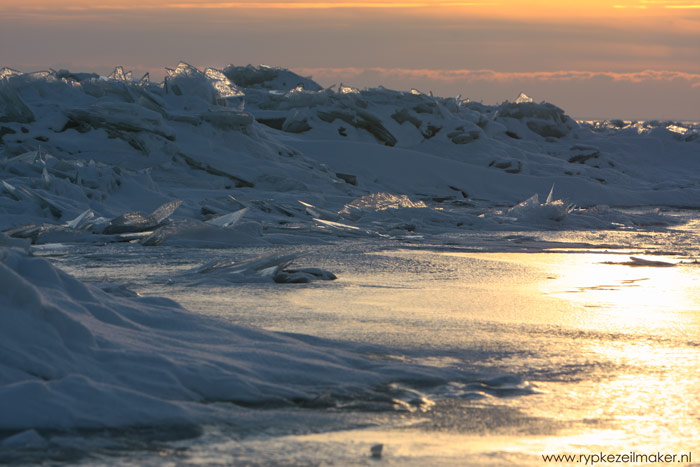Wij klimaatsceptici zitten in een duister complot gefinancierd door de olie-industrie, bedoeld om u te misleiden. Er zijn -samen met deze duivelse sceptici- nog wat achterlijke en egoistische landen die het lichtende voorbeeld van klimaatcommissaris Connie Hedegaard van de Europese Commissie en onderwijzeres Maria van der Hoeven (CDA) van de IEA moeten volgen om de economie te ‘decarboniseren’ voor 2050.
Maar die dat halsstarrig weigeren…
De ontkenners! Eén van die egoistische landen is Brazilie. Vandaar dat hier nu ook in het leidende opinieblad Veja klimaatsceptische geluiden doorklinken. Met Petrobras zitten ook de Brazilianen in het duistere oliecomplot om de wereld te vernietigen voor hun eigen kapitalistische winstbejag. Lees maar hoe zij ook de journalistiek in dat land hebben omgekocht afgelopen maand:
A DOGMA STARTS TO MELT
Translation from Portuguese or article in the Brazilian magazine VEJA, June 13, 2012 –
NATHALIA BUTTIDefenders of the thesis that global warming is man’s fault and will result in the destruction of the planet even in this century change their opinion an join ranks with the sceptic groups on Apocalyptic predictions by the UN’s climate panel.
It was as if he entire Arctic cover, equivalent to almost double Brazil’s area, collapsed, melted, under the thesis that man is the great villain of the global warming. In an interview in the website of the American TV NBC at the end of April, British environmentalist James Lovelock, 92, still lucid, claimed to be alarmist in his considerations about climate change. “It was foolish from my part,” reiterated Lovelock to VEJA (read the interview on page 113). “The human being is not more responsible than trees in relation to temperature increases.” Not even Climategate or the scandal about IPCC’s reports manipulations were such a hard blow to defenders of the idea that mankind lives an impending planetary emergency the result of excessive CO2 emissions, as Lovelock’s words.
Author of Gaia’s Hypothesis according to which Earth is super organism that auto regulates and, sooner or later, will react against the devastating man’s aggressions against nature, Lovelock is a dean of modern environmental activism. Elected as hero of the environment by Time magazine in 2007, he was transformed, along with former vice president Al Gore, in one of the most ardent prophets of doom during the past decade. Until he changed his mind, Lovelock reverberated terrifying predictions about our planet’s future. In one of those he claimed that 80% of the world population would be decimated by catastrophes until 2100. The remaining 20% would live in the Arctic, with not much water and food.Lovelock’s revisionism is still noisier because it enrages the common sense of the “end of the world” tied to warming. During the Green Nation Fest event on May 31 to June 7, in Rio do Janeiro, anteroom for Rio+20, visitors were carried to feel the sensations of living in a planet affected by deicing, by fires and floods. Just as an inverse fun park, the simulation was a big success. But, meanwhile, reality is another thing, sadly less spectacular.
Lovelock was not the only scientist of renowned doing recently a change of mind. In September of last year Norwegian physicist Ivar Giaever, Nobel Award in 1973 left the American Physic Society (APS) because he dissented with the institution’s posture in relation to the issue. Giaever said in that occasion: “The APS accept debate on if here are alterations in a protozoon mass, or multiple universes, but evidence about global warming is unquestionable? This matter is turning into a religion. I am a disbeliever.”
With his statement Giaever went into the group of academics –now made larger by Lovelock’s entrance- that question human actions on temperature increase and don’t believe in Armageddon. They are the sceptics of warming. Those dissenters, is emphasized, do not deny the fact that Earth is warmer –almost all today’s scientists agree that Earths’ average temperature went up 0.8ºC in the past century. The divergence falls upon the cause of the oscillation.
For sceptics, alterations are not due to excessive burning of coal and oil, but a natural cycle of warming and cooling in Earth. The planet would have passed through at least four other similar periods in the last 650,000, much before the Industrial Revolution in the XIX Century. “More powerful forces than human actions influence climate, as solar radiation and the temperature oscillation in the oceans,” says geographer Gustavo Baptista, from Geoscience Insitute in Brasilia University. “It is a presumption to find that men have more influence on climate than the activities that moved tectonic plates.”
Denial of a radical version of global warming is not quite a new stance. In 1990, when the IPCC released its first report, some scientists already had opinions contrary to the UN’s considerations. Mistakes in reports, predictions not come true, and the revelations of fraud in researches boosted the increase of dissenters. The fact that shacked the most the “end of the world” hypothesis by the IPCC, according to some sceptics, was the temperature stabilization during the last ten years, that contradicts all reports from the IPCC. During the Climategate email leaks in 2009, an IPCC scientist was afflicted. Kevin Trenberth wrote: “We cannot explain the lack of warming in ths moment. This is a farce we cannot keep.” Sceptics suggest that fails in calculations of temperatures reveal the fragility of computer models used by the UN. According to them IPCC models exaggerate CO2 effects, ignore other variables, and result in a false prediction of warming.
It is hard to tell who’s right –sceptics or radicals- in the global warming impasse. Both sides have evidence supporting their thesis. The IPCC reports are made by 3000 scientists of many countries and constitute the major set of available data about climate phenomena. Sceptics base their claims on geologic and paleontological records showing similar climate alterations thousand and million years ago.
A debate, in itself, is not a problem. From debates comes out the best solutions for some issues. The danger is in dogmatism and exaggerated polarization. “Doctrinarian mentalities produce unrealistic solutions and prevent things to mean intelligent term,” said to VEJA Danish scientist Bjorn Lomborg, one of the most notorious sceptics. For the American climatologist Richard Lindzen the risk is politization. Lindzen says: “When something become part of a political program, the politically acceptable position becomes the objective and not the consequence of scientific research.”
It is possible that all sceptic’s thesis –and from those scientists that revert their positions on global warming recently- may shown to be wrong as times goes by. In science there are not absolute certitudes. However, there is not possible to deny the contribution made by sceptics for elucidating of the climate question. As the British biologist Thomas Huxley said, one of the fathers of the modern scientific thinking, “Scepticism is one of the biggest duties. Blind faith is a un unforgivable sin.”







"Door de opwarming van de aarde wordt het steeds kouder"
Zelfs bij It Reade Klif:)
Ik vind dit één van je favoriete foto's. En dat in Nederland.
Ironie werkt niet online, ook omdat de nonverbale communicatie er niet is.
Het onderstaande citaat kan zó geplaatst worden in de volgende aflevering van een partijblaadje van de PvdA of GroenLinks. Deze mensen functioneren vaak net als Tofik Diebiel op een niveau lager dan groep 6 of daaromtrent van de Basisschool.
"Wij klimaatsceptici zitten in een duister complot gefinancierd door de olie-industrie, bedoeld om u te misleiden. Er zijn -samen met deze duivelse sceptici- nog wat achterlijke en egoistische landen die het lichtende voorbeeld van klimaatcommissaris Connie Hedegaard van de Europese Commissie en onderwijzeres Maria van der Hoeven (CDA) van de IEA moeten volgen om de economie te ‘decarboniseren’ voor 2050.
Maar die dat halsstarrig weigeren…
De ontkenners! Eén van die egoistische landen is Brazilie. Vandaar dat hier nu ook in het leidende opinieblad Veja klimaatsceptische geluiden doorklinken. Met Petrobras zitten ook de Brazilianen in het duistere oliecomplot om de wereld te vernietigen voor hun eigen kapitalistische winstbejag."
Je moet dit niet doen denk ik, ze gaan het aanhalen als bewijs.
Prima jounalistieke constatering: "The danger is in dogmatism and exaggerated polarization".
Echter het grootste "gevaar" is voor mij de zeer omvangrijke door de overheid / afhankelijke "duurzaam" industrie / politiek gehandhaafde gesubsidieerde geldstromen naar het politieke klimaatalarmisme.
Als die geldstromen worden stopgezet sterft het klimaatalarmisme versneld een stille dood!
De pest is dat dit hele beleid inclusief de financiering al jaren geleden door het parlement is aangenomen. Daar verandert niemand wat aan, sterker nog, ze verschuilen zich er achter.
Diep in hun hart weten veel politici best hoe de vork in de steel zit, maar om gezichtsverlies te voorkomen blijven ze stil zitten en houden hun mond.
Dat heb je met slapjanussen.
Hopelijk heb je gelijk Niek, ik vrees echter dat het denken over deze zaak vaak echt het basisschoolniveau niet te boven gaat bij politici van de meeste partijen.
* Hoeveel politici weten wat een 'positieve feedback' is in het klimaatdebat ? En hoe groot die moet zijn om dat tientallen miljarden Euro's kostende klimaatbeleid te rechtvaardigen ? En hoe die eventueel vastgesteld zou kunnen worden, wat nog altijd niet op onomstreden wijze gebeurd is …
* Hoeveel politici weten waarom de laatste ijstijd eigenlijk is geëindigd ?
* Hoeveel politici weten wat het Holoceen thermisch maximum was, en wat toen de toestand was van de tegenwoordige woestijngebieden in Azië en Noord-Afrika ?
* Hoeveel politici weten dat het een zekerheid is dat er een nieuwe ijstijd komt als we daar niets tegen doen ? Hoeveel politici weten wat er gebeurt met de leefbaarheid van Nederland, Europa, Azië en Noord-Amerika zodra die volgende ijstijd begint ?
Deze vragen stellen is ze beantwoorden.
Jammer Niek, dat ik niet meerdere keren op "waardevol" kan drukken,
om de inhoud van je bericht op te waarderen. Ik heb, als naïve burger, altijd vertrouwen gehad in de redelijkheid (lees=gevoelig voor feiten en wetenschappelijk onderbouwde argumenten)van de politiek. Maar door de inhoud van de gesprekken die we,als tegenstanders van windenergie,voeren hier in Groningen en Drenthe met provinciale en landelijke overheden en politici is dat vertrouwen volkomen verdwenen.
Zij "slapjanussen"? Nee, noem dat je tegenstander maar liever een NIMBY…..
Hoewel: een betere vertaling van het begrip NIMBY is inmiddels:
Next Idiot Might Be You!
Ik neem tegenwoordig in de discussie vaak afscheid met de volgende zin: "ik wens u verder een fijne dag en een windturbinepark in uw achtertuin."
@ Niek: met het uitzicht op 12 september: Een stem tegen Europa is een verloren stem, helaas. Een stem tegen windenergie is een verloren stem, helaas. Een stem voor Wilders is een verloren stem, helaas. Een stem voor de PVV is een verloren stem, helaas. Ik kwam/kom nooit uit op de PVV in de stemwijzer (vanaf 15 augustus: http://www.stemwijzer.nl/Nieuws2/De-StemWijzer-me… ), maar vreemd genoeg op de CU/SGP, waar ik dan nooit op stem, want dat is een verloren stem.
Gezien mijn leeftijd mag ik wel op de meest "ego-centrische" partij stemmen (Partij 50+ = oud Nieuwe Links van Jan Nagel) : Echter is ook niks. En het "Niet doorschuiven maar doorpakken" blijkt economisch een farce.
Syp Wynia verwoorde het perfect: Partijen die zeggen te willen bezuinigen, voeren veelal lastenverzwaringen in. En partijen die niet willen bezuinigen, zijn vaak weer wel voor Europa.
http://video.elsevier.nl/#!category/Elsevier::Wyn… Week
Ik ben ontheemd in politiek Nederland, want de schatkist-verkwistingen aan het "klimaat" en tientallen miljarden aan de duurzame geldstromen blijven als water naar de zee vloeien.
Ontheemd, velen met mij?
Mooie blog.
Vanavond even naar Nieuwsuur gekeken met Louise Fresco over de voedselsituatie voor o.a mais in de USA, het kwalijke gebruik van landbouwgronden in de derde wereld voor biobrandstof (jatropa).
Echt een must see. We wisten het natuurlijk als lezers van dit blog…de jaren 30 en 50 waren ook droog in de US. het gebruik van jatropa voor biobrandstof is en het opofferen van goede landbouwgrond daarvoor. Maar het goed dat het nu eens over het voetlicht komt…op het andere net keken de meeste mensen naar de Olympische spelen. maar toch…
Even de link naar nieuwsuur.
http://www.uitzendinggemist.nl/afleveringen/12768…
Vanaf ca. 8.20 begint het onderwerp, Louise Fresco vanaf ca. 14.00 min.
En Simon Rozendaal op Lse4 over met honderden miljarden $ gesubsidieerde biobrandstof-gekte en als gevolg honger voor de aller armsten op de wereld, met nog een toegevoegde sneer naar het PBL!
http://www.elsevier.nl/web/Opinie/Commentaren/345…
Je hebt Microsoft Silverlight 2.0 nodig om deze uitzending te kunnen bekijken.
Da's nou weer balen.
Maar gelukkig heb ik 'm via glasvezel ook zie ik net.
Over de bedreiging door de Groene Leugen van Jatropa in Afrika begint op 27:13 min. http://www.uitzendinggemist.nl/afleveringen/12768…
Jatropa is als onkruid geplant op gezonde landbouwgrond, met lage brandstof opbrengst, en bovendien niet eetbaar, suikerruit als alternatief wèl en geeft een hoge opbrengst per m2,(in Brazilië "succes") als je tenminste voor biofuels wil kiezen (een weldenkend mens wil dat niet, zolang fossiele olie-/gasvoorraden nog steeds toenemen wereldwijd!).
Biofuels drijven daarbij voedselprijzen op van de allerarmsten. het is het voorbeeld waar "duurzaam" en ontwikkelingshulp elkaar pijnlijk duidelijk bijten.
We hadden al zoveel eerdere blunders en leugens van "Duurzaam".
Jatropa is dus de laatste blunder van "Duurzaam"! De naam van de "duurzame" J.P.van Soest zit er gelukkig aan vast geplakt.
Niek Rodenburg schreef:
"Je hebt Microsoft Silverlight 2.0 nodig .. ".
Klik op "Instellingen" en kies voor Flash.
De groenmensen zijn volslagen los van alles.
De misser van de windenergie en nu, als volleerde kolonialen, voedsel in de tank.
Een beetje groen gedram is nuttig, dat houdt ons wakker.
Maar verhoedt dat ze ideetjes mogen uitwerken: stop de subsidies!
Al in 2009, één jaar voor het faillissement van BioShape, schreef ons onderzoeksteam dat jatropha een mislukking was.
In zoverre zagen we de 'laatste blunder' dus al drie jaar geleden aankomen. Sterker nog, de mislukking was in 2009 al totaal voordat de jatropha hype door de club van van Soest werd gepromoot.
Ons onderzoeksteam kreeg zelfs e-mail van zogenaamde jatropha deskundigen met het verzoek om onze onderzoeksresultaten niet te publiceren omdat anders hun dik belegde boterham in gevaar zou komen.
Onder supervisie van van Soest is zelfs een frauduleus rapport opgesteld waarin stond dat de teelt van jatropha CO2 neutraal zou zijn, maar onder supervisie van van Soest werd gesjoemeld met de data door onder andere de kap van tropische bossen en andere invloeden niet mee te tellen in de berekeningen. Net zoals veel klimaatalarmisten data weglaten die hun berekeningen negatief zouden kunnen beïnvloeden.
Wij hadden echter niet dezelfde vriendjes en vriendinnetjes die van Soest had (gelukkig niet), die hij met onwaarheden kon bestoken en die met open kwijlende mond aan zijn lippen hingen als hij weer eens met zijn armen breed zwaaiend de jatropha leugen aan het preken was.
Vandaar dat het helaas tot dit jaar moest duren voordat de ogen eindelijk zijn opengegaan in het programma Nieuwsuur.
Langzaam sluit het net zich rond van Soest want hij moet niet denken dat hij hiermee zomaar weg kan komen alsof er niets gebeurd is.
Uiteindelijk zullen zijn vriendjes en vriendinnetjes hem als een baksteen laten vallen zodra alle details bekend worden gemaakt.